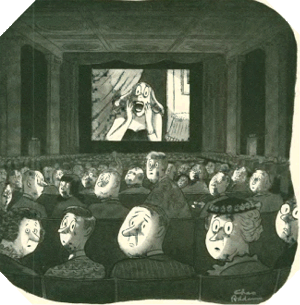"I wanted the American eagle to go screaming into the Pacific ...Why not spread its wings over the Philippines, I asked myself? ... I said to myself, Here are a people who have suffered for three centuries. We can make them as free as ourselves, give them a government and country of their own, put a miniature of the American Constitution afloat in the Pacific, start a brand new republic to take its place among the free nations of the world. It seemed to me a great task to which we had addressed ourselves. But I have thought some more, since then, and I have read carefully the treaty of Paris which ended the Spanish-American War, and I have seen that we do not intend to free, but to subjugate the people of the Philippines. We have gone there to conquer, not to redeem. It should, it seems to me, be our pleasure and duty to make those people free, and let them deal with their own domestic questions in their own way. And so I am an anti-imperialist. I am opposed to having the eagle put its talons on any other land".
... Mark Twain (1835-1910) describes [in 1900] his political awakening from being "a red-hot imperialist'' in the context of the Philippine-American War.



Twain´s observation “We have gone there to conquer, not to redeem ...” regarding the Phillipines a century ago could as well be as appropriate today regarding American misadventures in Iraq and Afghanistan. Despite all the window dressing rhetoric to the contrary (ie regime change to “free” supressed peoples, etc), its very doubtful the US would be in these countries if not for its crucial foreign oil dependency.
ReplyDelete